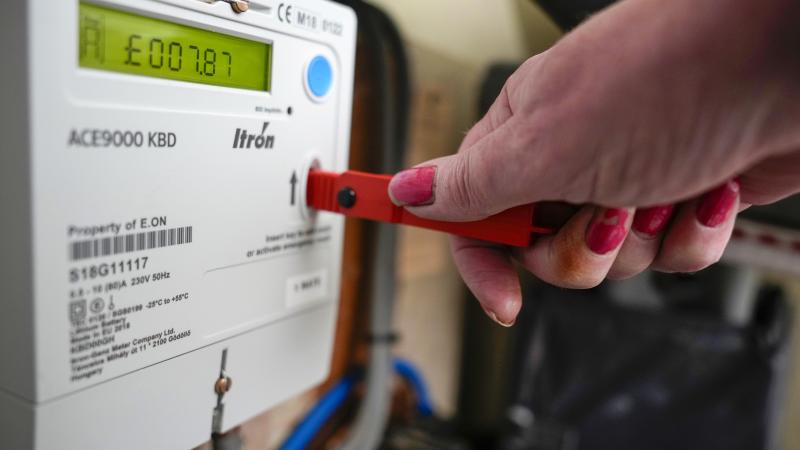Millions protected by tighter ban on force-fitting prepayment meters
A ban on energy firms force-fitting prepayment meters has been extended to protect millions more people including the over-75s and families with children under two, in a significant victory for a campaign by The Times.
Ofgem, the energy regulator, announced its new legally enforceable rules for energy companies on Wednesday following a public consultation.
The rules, which come into effect on November 8, will be part of energy suppliers’ licence conditions. Those that breach the conditions face enforcement action and unlimited fines.
The changes are the result of an undercover investigation by The Times that found British Gas was sending agents to break into its customers’ homes and forcibly install prepayment meters, even when families were known to have extreme vulnerabilities.
Energy customers who use prepayment meters but cannot afford to top them up are cut off from their supply, leaving them without light or heating.
Last winter British Gas was found to have forcibly installed the meters in homes where occupants included the elderly, customers with known severe mental health problems and the mother of a four-week-old baby.
Ofgem’s initial proposals were for a voluntary code of practice for suppliers that banned them from force-fitting prepayment meters in the homes of people over the age of 85 who lived alone.
In response to concerns reported in The Times from charities and campaigners that this measure did not go far enough, Ofgem announced a public consultation which ran during the summer.
Particular concerns were raised by NHS doctors about the risks to under-fives living in cold homes as this can lead to an increased potential for breathing problems such as asthma and bronchitis, low weight gain in babies, slower growth and development and higher levels of hospital admissions.
The new rules include a ban on suppliers forcibly installing prepayment meters for anyone over 75 who has no live-in support and at homes with children up to 24 months old.
Homes with children up to five years old will be considered in a “further assessment needed” category in which an energy company would have to assess the individual circumstances of that home and be able to justify that it was safe and reasonable to install a prepayment meter.
At present, no suppliers are carrying out forced installations. They will only be able to restart applying to courts for the practice if they meet strict criteria set by the regulator.
Ofgem said that it would review the rules periodically to ensure they continued to protect the most vulnerable while also not unsustainably increasing bad debt, which would add to wider customer bills.
‘Harm must never be repeated’
Citizens Advice, the consumer charity that worked with Ofgem on the proposed changes, welcomed the new rules but said they should go further.
Dame Clare Moriarty, chief executive in England and Wales, said: “The harm caused by the prepayment meter scandal must never be allowed to be repeated. Evidence is clear that children under five need energy for their health and wellbeing.
“Ofgem’s decision does not go far enough to stop all families with children aged five and under from being forced on to a prepayment meter. That poses a significant risk, which we will be monitoring closely.”
Conor D’Arcy, interim chief executive of the Money and Mental Health Policy Institute, said that the new rules would “help to reduce some of the grotesque behaviour from suppliers exposed by the media earlier this year”. However, he warned: “The reality is that thousands of people with mental health problems could fall through the cracks.”
Neil Kenward, director for strategy at Ofgem, said: “Protecting the most vulnerable consumers is at the heart of what we do. Ofgem will be monitoring suppliers’ behaviour closely to ensure they are complying with the spirit and letter of these rules. If that is not the case, we will not hesitate to take action.”
How firms were tamed
The Times undercover investigation led to the suspension of force-fitting prepayment meters and to investigations by Ofgem, the government and two parliamentary committees.
Lord Justice Edis, one of the country’s most senior judges, ordered courts to stop listing hearings for energy warrants. The order has not been lifted and, without these warrants, suppliers cannot force-fit meters.
Energy companies have been told that they must identify cases where they have wrongfully installed the meters and offer those customers compensation and change their meter to another system.
Prepayment meter installations should only be used when all other options to recover debt have been exhausted, and where it is safe and practical to do so. Suppliers have to make at least ten attempts to contact a customer and complete a “site welfare visit” before taking this action.
The forced installations should never occur when customers use powered medical equipment, refrigerated medicines or have certain conditions that require warmth, such as emphysema.
The new rules also require people working on forced installations to wear body cameras or audio recorders, with customers’ permission, so that home visits can be audited. Last year energy suppliers force-fitted prepayment meters in customers’ homes more than 94,000 times.
Amanda Solloway, minister for energy consumers and affordability, said: “I was horrified by the actions of some suppliers to install prepayment meters in the homes of some of the most vulnerable people in our communities.
“I hope these measures from Ofgem will ensure this never happens again. But clearly the real test will be seeing these improvements made on the ground. I’ll be watching closely to make sure suppliers are sticking to the letter of the law and will support Ofgem in holding them to account.”






